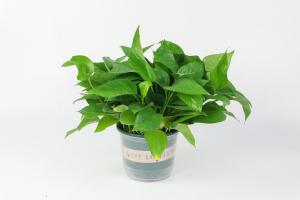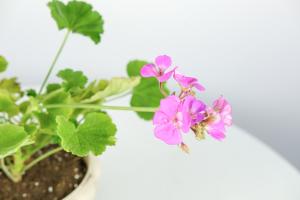How to Cultivate Delicious Eggplants in Your Garden
Introduction
Eggplants are a nutritious and scrumptious addition to any dish. Growing eggplants in your home garden is a great way to enjoy fresh, tasty produce while getting some light exercise and improving your gardening skills. In this article, we will walk you through the basic steps of planting eggplants in your garden.
Choosing the Right Variety of Eggplant
Eggplants come in a variety of colors, shapes, and sizes. Some eggplants are small and round, while others are long and skinny. Some are purple, while others are white or green. When selecting eggplant seedlings, consider the space you have available in your garden and the type of dish you plan to cook. For example, if you are looking to make baba ghanoush, a type of Middle Eastern dip, you may want to opt for a long, slender eggplant, as it will produce more flesh and fewer seeds.
Preparing Your Garden for Eggplant
Eggplants thrive in warm and sunny weather, so it is important to choose a location in your garden that receives at least six hours of sunlight each day. The soil should be well-draining, with a pH level between 5.5 and 6.5. Fertilize the soil with organic matter or manure a few weeks before planting your seedlings.
Planting Your Eggplant Seedlings
Transplant eggplant seedlings into your garden once they have grown 4-5 inches tall and have a few sets of leaves. Dig a hole that is deep enough to accommodate the entire root ball of the seedling. Space the plants about 18-24 inches apart to allow room for growth. Water them thoroughly after planting.
Caring for Your Eggplant Plants
Eggplants require consistent watering to thrive, especially during hot weather. Water the plants every 2-3 days or when the top 1-2 inches of soil feel dry. Eggplants also benefit from regular fertilization, especially when they start to produce fruit. Consider using a balanced fertilizer every couple of weeks during the growing season.
Harvesting Your Eggplants
Most eggplants are ready to harvest 60-80 days after planting. The skin should be firm and shiny, and the fruit should be relatively heavy for its size. Use a sharp knife or scissors to cut the eggplant from the stem. Be sure to harvest the fruit before it becomes too mature, as overripe eggplants can develop a bitter taste.
Conclusion
Growing eggplants in your garden is a fun and rewarding experience that can provide you with a bountiful harvest of delicious, nutritious produce. With the right care and attention, your eggplants will thrive and provide you with a tasty and versatile ingredient for many different dishes. Happy planting!

 how many times do yo...
how many times do yo... how many planted tre...
how many planted tre... how many pine trees ...
how many pine trees ... how many pecan trees...
how many pecan trees... how many plants comp...
how many plants comp... how many plants can ...
how many plants can ... how many plants and ...
how many plants and ... how many pepper plan...
how many pepper plan...
































